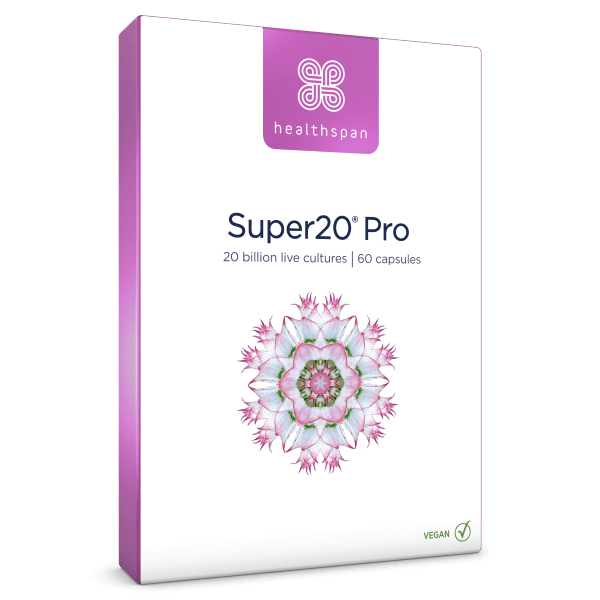Everyone knows that exercise is great for fitness and emotional well-being, but it also plays a crucial role in keeping your digestive system healthy. Keeping active relieves stress and helps maintain a healthy weight - two things that can affect digestion. It also helps relieve digestive complaints, such as constipation and bloating, and allows your body to absorb nutrients more effectively.
How our digestive system works
Our digestive system is responsible for breaking down food and providing energy to the rest of the body. Food is moved through the digestive system by a mechanism called peristalsis, where two sets of muscles in the walls of the gut contract and propel food along. Research suggests that it takes 33 hours on average for men to digest their food, compared to women where it takes 47 hours to digest their food.
Why exercise is important for our digestive system
As well as having many other benefits, regular exercise is important for your digestive system. Doing regular exercise can increase the blood flow to the muscles in your digestive system. Regular exercise also keeps your musculoskeletal system (muscles, joints and bones) healthy. Any exercises that use your body weight including the plank, lunges, and ones using weight machines or hand weights will enhance muscle function and help improve balance. Maintaining this throughout your life can help you to prevent injury and multiple health problems.
How exercise affects digestion
As well as stress and an unhealthy diet, a sedentary lifestyle can lead to a whole range of digestive disorders, such as constipation, bloating, and wind.
Regular physical activity stimulates the gut, while increasing intestinal activity, so digestive problems are prevented. It increases blood flow to all your muscles, and this keeps the muscles in the digestive system moving, allowing food to pass through it much quicker, even when you're resting.
A study, published by The American Journal of Gastroenterology found that physical activity improves symptoms of IBS. It also decreases the risk of gallstones forming.
Exercise is not only good for your gut, but for your entire body. For more information, read our blog on Why exercise is good for your health.
Six ways to improve your digestive health
The good news is that anyone can do simple exercises every day to improve their gut health. Here are our top tips to ensure your digestive system is running smoothly:
- Get moving: try and be physically active every day, even if it's just a walk.
- Yoga: this is one of the most beneficial exercises for digestive health. Some yoga poses such as twists and forward bends can relieve problems such as constipation. A study, published by Psychology, Health & Medicine, found that yoga significantly reduced the severity of IBS symptoms.
- Eat a healthy, well-balanced diet: get more fibre in your diet from a variety of sources. Fibre-rich foods include cereals, wholemeal or granary breads, potatoes with their skin on, pulses and fresh or dried fruit.
- Drink plenty of fluids: keep drinking, especially water, as this also encourages waste to be passed through the digestive system and helps prevent constipation.
- Practise deep breathing: one study, published by the American Journal of Gastroenterology, found that abdominal breathing exercises can strengthen the diaphragm and improve symptoms of acid reflux.
- Choose a gentler exercise: mild to moderate exercise may be better for your digestive system than vigorous workouts. A review, by Sports Medicine, found that vigorous exercise is not always as beneficial and digestive disorders, such as diarrhoea, incontinence and rectal bleeding are surprisingly common with runners
Maintaining a healthy gut is crucial for your overall well-being. By incorporating the following factors into your daily routine, you can support the health of your body from the inside out. Regular exercise not only helps you look good, but it also activates mechanisms in your gastrointestinal tract that promote better health.
For more information, read our blog on why exercise is so important for your overall health.
Exercise enhances gut flora
A study, published in the Journal Gut found that exercise can enhance the diversity of microbes in the gut and affect the balance of bacteria in your gut, which homes more than 100 trillion types of friendly bacteria. This gut flora plays an active role in protecting our immune system. The body's natural defence keeps us healthy, inhibiting the growth of more harmful bacteria and helping to digest food and absorb essential nutrients.

Super20 Pro
Our best-selling probiotic
- 20 billion live cultures from 5 well-researched strains
- Contains Lactobacillus acidophilus, Lactobacillus paracasei, Bifidobacterium lactis and Bifidobacterium bifidum
- Supports the protective intestinal microflora in the gut
Exercising regularly can be really good for your health and help to promote healthy digestion. But if you need further help, taking a digestion supplement can aid gut health for a wide range of issues. For more information on how to improve your body and keep healthy, we have a range of blogs which covers all different topics around body health.







